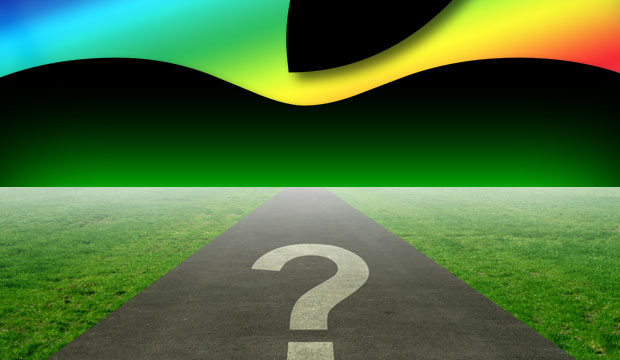Apple reportedly has begun testing a premium iPhone with a revamped display and body, which could be one of three new models the company is expected to launch this fall. The other two likely will be upgrades to the two existing iPhones.
The new design will incorporate curved glass and stainless steel. It will increase the surface area of the display without increasing the size of the phone, Bloomberg reported Tuesday.
“The three-phone rumor has been a consistent rumor over time,” observed Kevin Krewell, a principal analyst at Tirias Research.
“That’s why I believe it to be what Apple is planning,” he told TechNewsWorld.
Introducing a trio of iPhones instead of the typical two makes sense, said Charles King, principal analyst at Pund-IT.
“That’s especially true when you consider that this is the 10th anniversary of the iPhone, and the continuing criticism heaped on Apple for lack of innovation,” he told TechNewsWorld.
The new top-of-the-line model could cost more than $1,000, according to some Apple watchers.
Bezel-less Display
Giving a smartphone a bigger screen without increasing the overall device size has some design advantages, as Apple’s competitors have discovered.
“The taller, longer form factor that LG and Samsung have adopted creates an edge-to-edge display on the left and right side of the device,” noted Ross Rubin, principal analyst at Reticle Research.
“There’s a strong case for it from a design perspective,” he told TechNewsWorld. “It allows you to get a larger diagonal screen while making the phone easier to hold.”
With Samsung going to a bezel-less” display in its latest model, it’s likely Apple has something along those lines in the works, suggested Tim Bajarin, president of Creative Strategies.
“It would make sense for Apple to streamline the design and give users more working space with a bezel-less screen,” he told TechNewsWorld.
OLED Display
The premium iPhone will have an OLED display, Bloomberg also reported. OLED displays are brighter, more flexible, and consume less power than conventional LED screens.
“Apple would like to use OLED across the lineup, but has had trouble sourcing enough OLED screens to do so,” noted Tirias’ Krewell, “but OLED is the right choice for the premium model.”
Use of stainless steel, although challenging, also would be a good choice for a premium model.
“Stainless steel is a material that Apple has continued to develop expertise in with its watch, so stainless may be justified in a premium edition of the phone,” Reticle’s Rubin said.
Stainless steel is more rigid than aluminum, which is used on the current iPhones, and harder to mill — so it could be challenging to Apple’s suppliers, Krewell noted.
“Steel also weighs more than aluminum, so it must be used more sparingly to keep the phone light,” he pointed out.
Significant Camera Changes
Significant camera changes are in the works for the premium iPhone, Bloomberg also reported.
For example, Apple is experimenting with placing the dual cameras in the phone horizontally instead of vertically, as they are in the iPhone 7 Plus. The design change could result in better photos.
Apple also may add dual cameras to the front of the phone as well as to the back.
One thing Apple hasn’t been able to get rid of yet, though, is the bump created by the rear-facing camera.
It’s likely that Apple is going to push the camera envelope with the new iPhones, said Andreas Scherer, managing partner at Salto Partners.
“The market expects improved dual lenses and potentially augmented reality-based features as well as depth of field enhancement,” he told TechNewsWorld.
“There is a plethora of photo-editing software in the App Store that allows the editing of pictures on a near professional level,” Scherer added. “As a result, Apple will continue to take market share from camera manufacturers of point-and-click cameras and entry-level DLSRs.”
Virtual Home Button
Another persistent rumor — repeated in Bloomberg’s report — is the replacement of the home button at the bottom of the iPhone with a virtual button on the screen.
“It’s a design necessity if you’re going to create a phone with a high display to surface ratio,” maintained Reticle’s Rubin.
A soft home button requires careful application of fingerprint sensors in or under the OLED screen, said Tirias’ Krewell. “That’s very cutting-edge technology and a hard manufacturing challenge, but Apple likes to push the envelope for a cleaner look.”
Can Apple hit a home run with its new 10th anniversary premium iPhone?
“It’s becoming much more difficult to differentiate in the smartphone market,” observed David McQueen, a research director at ABI Research.
“While Samsung has beaten Apple to the punch with many new features, it seems Apple will be adding most of them to its new lineup, too — as well as e-SIM, support for Apple Pencil, and an enhanced version of Siri,” he told TechNewsWorld.
“Apple’s inability to hit a home run with past iPhone products has allowed Samsung and others to catch-up,” noted Pund-IT’s King.
“It’s not clear to me whether the company’s focus on nominal iPhone upgrades and improvements is a system issue, or suggests that we’re reaching the limits of smartphone capabilities,” he continued. “The upcoming iPhones should help answer that question.”






















































